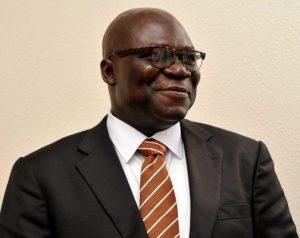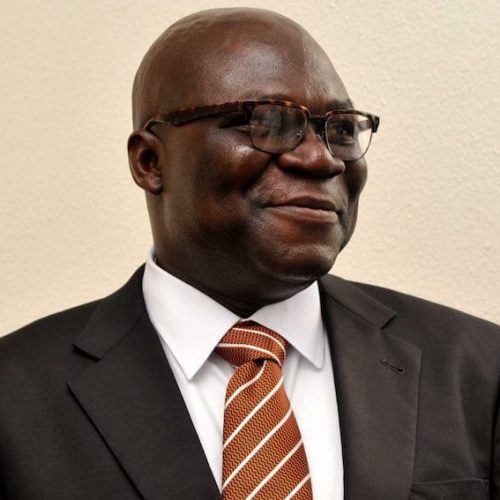By Lasisi Olagunju
I am tired of writing about President Muhammadu Buhari. Hackneyed subjects can become rancid, rank meals for a columnist – and for his readers. But since the president’s lice procreates daily, so the thumbnails will keep having bloodstains.
Indeed, if Aroni refuses to come home, should Onikoyi have any excuse to stop going to war? Onikoyi in Old Oyo was that warrior king of the Alaafin who frightened death himself. He was notorious for warring, proverbially searching for his elusive medicine man, Aroni. When others planted yam seeds, Onikoyi planted human heads; when others drank palm wine, he drank blood.
His descendants today carry that intrepid badge of war-likeness. Buhari loves provoking us to talk even when we feel he is too far gone in his ways to benefit from any counsel. He said on Friday that his enemies wanted to start accusing him of being an ethnic bigot. They wanted to accuse him of protecting suspects in “crimes of murder, kidnapping, rape, and banditry.”
The enemies, he cried out, “are hell-bent on distorting reality and Nigerians are urged to be wary of them.” The president mentioned ‘reality’ and I checked my dictionary: ‘Reality’ means “the state of things as they actually exist.” The opposite of that word is “fantasy.” Given what Nigerians know of their country since 2015, is ‘fantasy’ not the best description for our president’s ‘reality’? Buhari is a president who started ruling us with that insidious thing called ‘body language.’ And he so much enjoyed how his hesitant, tentative, complicit non-actions were positivised by his lovers as an unfailing method of governance. Those nonverbal signals he is sending out; his body movements or lack of body movement – the thing he refuses to say or do which he ought to say or do; his facial expressions or non-expressions etc daily embolden the vagrants from his valley.
Videos of lurid accounts of confident Fulani herdsmen’s atrocities assail our senses daily. Does the president feel what the people feel? The arrested killers of Funke Olakunrin, daughter of Afenifere’s Pa Reuben Fasoranti, are they in court? The bandits who kidnapped 344 schoolboys in Katsina, when are they going to be arrested and tried for their crime? Or is it that they were ghosts who operated in a realm beyond the long arms of our government?
When a nation suffers the kind of blistering insecurity we suffer and the government is only known for issuing condolences and threats, there is a problem. When herdsmen enter people’s farms with confidence, what drives their courage can only be the ‘reality’ of their being children of the king, awon omo onile.
There were kings in Yoruba’s recorded history who lost everything because they refused to curb the excesses of their Aremo, their crown princes. There were chiefs who lost influence and power because their slaves were doing to the people the impunity we receive daily from herdsmen whose biceps are stronger than the sword of justice. I do not know if the president truly has enemies seeking to ‘distort’ his ‘reality.’ What I know is that the ghost hunting the president now is that of the inexplicable refusal of his lightning to strike down those killing, maiming, kidnapping, raping, ravaging the peace of the land from the desert to the Atlantic.

When a president does what Nero was accused of doing when Rome was burning, he cannot complain that his ‘enemies’ are plotting to call him the enemy of the state.
In the year 1907, there was widespread insecurity in Ibadan. Thieves roamed freely in the city, some on horseback operating in broad daylight. There was no peace during the day; there was no sleep at night. The reigning Baale (king) feigned ignorance of the people’s pains. The people complained, they gave him hints, he ignored them. The people were aghast at the disinterestedness of their leader in their moment of suffering. Soon, his people began to move out of the town; compounds became empty, desolate, as farmlands became refugee camps. First, the Baale became very unpopular; next, he was accused of being the enabler and sponsor of the robbers. Then the city convulsed under the weight of subversive songs: Agbalagba e ba ‘lu je , Gbogbo yin ni e l’omo ole (Elders, you have destroyed the town/You all have robbery gangs). All the chiefs washed their hands of the crime; they heaped the dirt at the backyard of the Baale. The Baale was stunned. He pleaded innocence, no one listened. He employed the kind of blackmail presidents employ today to escape responsibility, he failed. He lost everything and everyone. By December 12, 1907, his era ended with his burial – he took himself out. I have not made up this story. If you are interested in it, read Oba I. B. Akinyele’s Iwe Itan Ibadan (1911) from page 154 to 159.
Five years before that experience, a Balogun of Ibadan suffered a similar fate. Balogun Kongi was Bashorun Ogunmola’s grandson. He was very influential but haughty and accused of accommodating criminals. His boys robbed and plundered the city while he picked his teeth and insulted the Baale and the other chiefs with drums and flutes. On September 1, 1902, the city, chiefs, and the street made the colonial government sack him as Balogun and got him banished to his grandfather’s village near Iwo “for habouring thieves.” He never returned to Ibadan. The decade before, the city experienced similar assaults on peace. But the criminals were not pampered; they were met with firm official sanctions. Colonial records are replete with cases and details of “raiding and pillaging” of the city of Ibadan by Hausa thieves – they were called Gambari. At a time, they were ordered out of the city but they were soon back because they had the backing of powerful chiefs.
In July 1897, Resident Fuller moved against the “great trouble” from the marauders and ordered all Hausas in Ibadan to “deposit their weapons” with the additional decision “to issue permits to those Gambaris who can satisfy me that they are here for the pursuit of an honest trade.” (See Resident’s Journals from 24 July 1897 to 21 January, 1899).
Does that not sound like what today’s Yoruba governors are doing, demanding that Fulani herdsmen should vacate forests, come out, and be registered? And what has been impartial Buhari’s reaction to that just demand? The story also tells us that the rain of insecurity from the north that is drenching the south today has its makers in history. While we sympathize with the president and his reconstruction of ‘reality,’ we hear the shrill cries of another Fulani leader immersed in the waters of unreality. He is ex-Governor Sule Lamido of Jigawa State. He said last week that the Fulani people were being “treated unjustly” in the country, particularly in the South West, just because they are of the same tribe as the president. “What Fulani are going through in this country is unfortunate. We are being persecuted, abused, endangered, called names, just because Buhari is from us. This is not fair. This is unjust. Today Nigerians are so blindfolded by the hate and apparent dislikes of Fulanis because of President Buhari’s misgovernance, forgetting that not all Fulanis voted for him and or likes him.”
He said Nigerians “are reading Fulani through Buhari, who is also of Fulani tribe.” Lamido asked Buhari’s 2015 political allies to rise and defend ”Buhari’s people” in the south-western region: “Why have those from the South who brought Buhari to power in 2015 failed to defend his people? Where are the Tinubus, Fasholas, Amaechis, Ngiges, Soyinkas, Rochas, among others? Why can’t they protect Buhari’s people?” Lamido queried. I hope those he named would see the need to reply to him. They should tell Lamido (and all who ask the questions he asked) that in our place, we only assist people to get jobs, we don’t do the work for them. His proposition must not escape before appropriate responses meet it.
Lamido, like Buhari, got it all wrong. It is tragic that the disciple of the legendary Aminu Kano only saw the reaction of the Southern people but closed his eyes to the blinding atrocities of his Fulani boys. Did he listen to Sultan Saad Abubakar’s last week’s statistics? The Sultan said seven or eight out of every ten kidnappers arrested are Fulani. That brutal truth from the number one Fulani in Nigeria is enough to make every good Fulani person in Nigeria sober. But the tragedy is not just in that figure, it is in the ‘reality’ that for every Fulani arrested or dealt with, there are eerie, systemic, official, solidarity tears, and a solid wall of excuse erected for the suspect by the innocent ones like Lamido – or even by the state.
There is no ethnic group or race without criminals. True. There are Yoruba people in Togo and Benin Republic, but their Nigerian cousins are not opening our gates for them to come and do crime here. The ones who sneaked in as house boys to steal and kill never escaped justice in Nigeria. There are homegrown Yoruba criminals too but how many leave their zone to go up north to rape, rob, kill and kidnap? Can we say the same of these people loudly complaining of injustice because victims are exacting justice from their tormentors?
The Fulani should stop sinning and complaining. Statista. com records against the Fulani 321 murders in 2017; 1,158 in 2018 and 325 in 2019. While we await their report card for last year, can we ask how many of those who committed those murders have been tried or are on trial? They did all those without repercussions and still tell us to shut up and let them be. I want our president to read Shakespeare’s King Leah. It is the story of that king who believes he is ‘more sinned against than sinning’. He chooses relaxation and abandons the hard work of ruling his kingdom to his daughters. He soon realizes that you cannot enjoy the powers of being king while shirking your responsibilities as king. While King Leah yells at the wind, rambling about ‘enemies,’ and about ‘undivulged crimes’ and ‘close pent up guilts’ he has no true friend around to ram it into his brain that authority without responsibility grisly, grimly damages the king. So, who are the president’s enemies and where are they? If I were him, I would start by looking in the mirror, then I would come out and ask ‘my people’ why their dog is always dressed in monkey costumes. I would stop seeing wolf where none exists. Above all, I would know that a king who chooses to beat the village drum with an axe should not complain that his people yell at him. Buhari’s eluulu (rainmaker) is the author of the rain beating him.


















